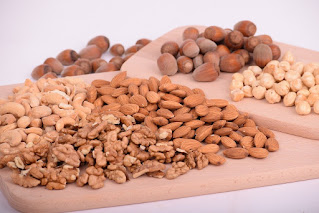Cross-linking theory of aging
Old couples Image credit goes to pixabay.com Cellinsight Everything about human ageing and related diseases Cross-linking theory The cross-linking theory of aging was proposed in 1942 by Johan Bjorksten. According to this theory Collagen and other proteins undergoing structural changes due to molecular cross linkage (collagen is an important body proteins comprising 30℅ of body proteins) . In the presence of oxygen glucose molecules binding to to proteins and this cross-linked proteins causing damage to cells and tissues resulting in aging. This theory is also called as glycosylation theory of aging. # Wrinkle and skin changes The cross-linked skin protein collagen is responsible for wrinkles and skin changes during aging # Tendon stiffening An increased cross-linked collagen is the reason behind tendon stiffening, tendons are connective tissues which connect muscles to bones. a stiff tendon can pass more mechanical energy from muscles to bone but it lose it's elastic prop


